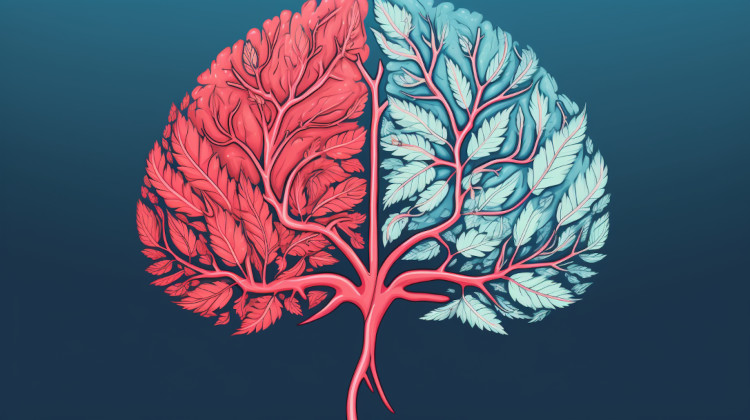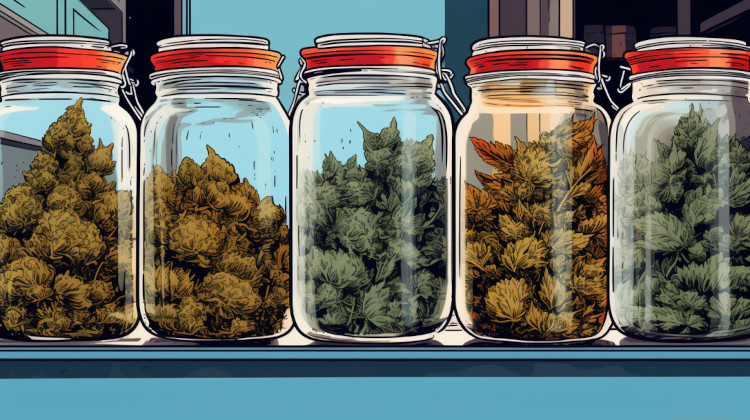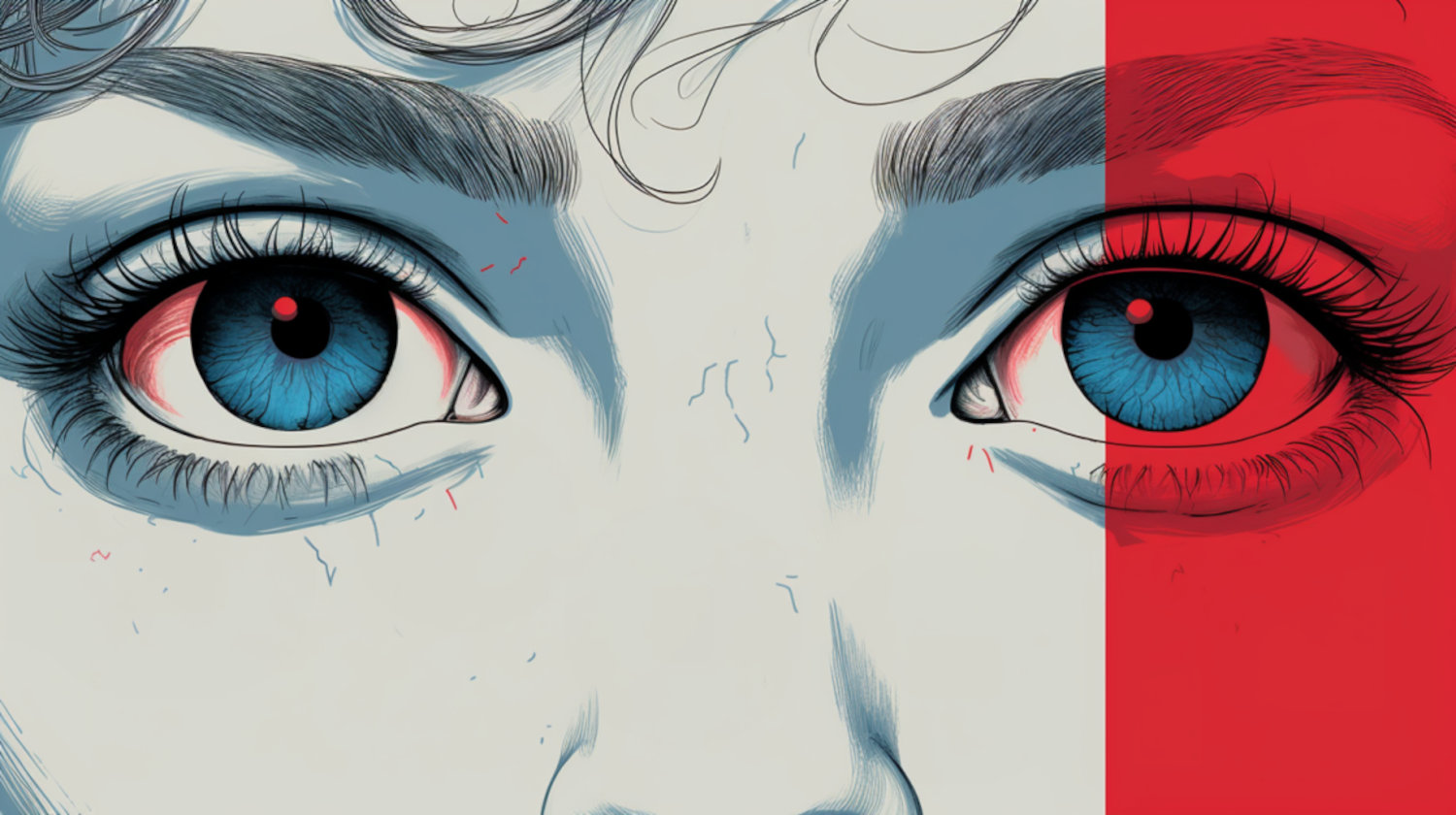The connection between cannabis and fits of laughter has been long documented through anecdotal use.1 Today, laughter is one of the plant's more commonly cited side effects. However, researchers are only now discovering what is and isn't true about the connection. So, what is weed that makes you laugh?
What is Laughter?
Everyone knows what laughter is. It's a natural response to amusement or humor. Even though everyone does it, it's hard to define and even harder to pin down scientifically.
In addition to amusement, fits of laughter can also occur in times of discomfort, anger, and other emotions. However, this article will focus on the primary use of laughter and its connection to a person's enjoyment, amusement, and general happiness.
We've laughed for as long as history can recall, probably much longer. Laughter is so deeply ingrained in us and connected to how we live that scientists have continued examining the emotion for centuries with no signs of letting up.
In 1872's "The Expression of the Emotions in Man and Animals," Charles Darwin theorized that the evolutionary basis of laughing was to serve as a social expression. Darwin hypothesized that humans use laughter to express happiness. More recently, a 2003 study found that the brain plays different roles in perceiving humor and generating laughter. While researchers were able to identify the various brain functions involved, a complete understanding was not reached at that time. That continues to be the case today.2
Countless theories have been posited since Darwin's entry in the late 1800s. Many theories have speculated on what the brain finds amusing. With hypotheses across the board, many have taken previously presented theories and weaved them together, believing that several answers could be correct to some degree.
One of the more common conclusions or theories centers on laughter's role in regard to community and social interactions. As Darwin suggested, laughter indicates a sign of happiness to the surrounding public, but others have concluded that laughter functions as a behavioral mechanism. In this case, laughter promotes social bonding, triggering the central endorphin system in the process.3
The wealth of research gathered over the years has helped provide some answers to the subject. However, even after all this time, science continues to search for definitive answers related to laughter and its connection to the brain and the world around us.
Laughter, Cannabis, and The Brain

Researchers have continued to chip away at how laughter affects the brain. Years of analysis have highlighted several areas that researchers believe play critical roles in creating the connection and its effects. Still, there is much more to learn.
Duchenne laughter is associated with moments of genuine enjoyment. Much like a Duchenne smile, this type of laughter typically accompanies full facial features, including uplifted cheeks, crinkled eyes, and a smile. Some researchers have connected this type of laughter to the brainstem and the limbic system, which is responsible for controlling emotions like fear, anger, and anxiety.
Research from the past 15 to 20 years revealed that science is still only scratching the surface of a complex and fascinating subject. As one researcher noted, many questions remain despite the subject having been analyzed for roughly 100 years.
Some questions include the similarities and differences between usual laughter and the type generated from a medical condition such as epilepsy. Other questions of interest include the functional anatomical differences between laughing and crying. Still, more yet-to-be-answered queries have explored the connection between laughing and crying. Researchers have yet to determine if these two emotions are activated through common structures or if separate mechanisms are responsible for each.
So why does weed make you laugh? Much like the ongoing laughter-brain problem, experts aren't entirely sure. However, there are some theories and reports to consider.
Notable findings include results from 2008, where researchers concluded that delta-9 THC produced a dopamine release in humans.4 Dopamine is also linked to happiness levels, as well as other emotions. Still, additional research is required to make any definitive statements.
The Social Side of Cannabis and Laughter
There's still quite a bit to learn about cannabis and laughter, especially related to how both affect the brain. One thing that seems to be true about both is that cannabis and laughter can significantly affect our social interactions.
Laughter is considered a behavioral mechanism for social bonding, which can trigger the body's central endorphin system. Some believe that the increased dopamine levels produced by cannabis help trigger fits of laughter. This effect is primarily attributed to THC and its intoxicating properties. When THC binds to the body's endocannabinoid receptors, neurotransmitters like dopamine and serotonin are produced. Similar boosts come with other positive physical activities, ranging from sleep to sexual intercourse and other forms of physical exertion.
Much like laughter, cannabis has a strong social component. Whether science can conclusively prove it or not, it's hard to argue that most humans seem drawn to laughter. At the very least, it demonstrates the ability to be a bonding element.
The same can be said about cannabis. Maybe it has to do with the decades of prohibition, but people tend to be drawn to fellow consumers. Small indicators that a person was pro-cannabis went a long way back when the drug war was raging at its peak. Nowadays, cannabis is much more socially acceptable in many places. But there's still something to be said for spotting someone who smells like weed out in public. The same goes for encountering someone wearing some "heady" culture gear. It's a way for people to bond, even if they've never met.
So, does weed make you happy? Why does it make you laugh?
It's clear that more research is needed if an answer can ever be reached. Still, anecdotes suggest some strong bond is going on, even if there's no way to fully understand to what degree.
It might be the increased dopamine levels that make people more prone to laughter, or it could be other factors that researchers have still yet to fully comprehend. There's also a chance cannabis plays no part at all. But going by the anecdotes, there does appear to be a connection between cannabis and laughter.
At the very least, the two are both effective communal bonding devices humans use. Each helps people find like-minded individuals and communities, even in places they may not be familiar with or comfortable in.
The Best Strains That Make You Laugh

That brings us to the all-important question: What are the best weed strains to make you laugh?
It's a straightforward question that can't be answered quite so easily. Below are some solid suggestions based on reports from cannabis consumers. Still, before diving in, it's essential to remember that each person responds to cannabis differently. While certain strain profiles can be more relied upon, there is no uniform result when consuming cannabis. Even if you try a strain known for uplifting effects, you may not feel that way after consuming it.
That's why it's important to break away from terms and classifications that don't help understand the plant. People are often fed the same misconceptions about the plant, notably the effects of indica and sativa cultivars. These plant types do not indicate whether consumers will get an energetic or sedative experience.
So, does a "sativa" make you laugh? Or does "indica" make you laugh more? The answer to both is maybe.
Rather than banking on an indica-labeled, sativa-labeled strain or any strain with a high THC potency, you're better off looking for a plant with a complete profile with compounds that may promote uplifting effects. Beyond cannabinoids, be on the lookout for certain terpenes that may have uplifting benefits. These may include:
Many strains with one or more of these terpenes have been credited as some of the best for uplifting moods and even addressing some depression symptoms. If you're looking to have a laugh or to at least elevate your mood, consider starting with some of the following strains:
Some strains specifically reported by consumers to induce fits of laughter include:
Remember that these are just a few options to get you started. Learning and sampling various cultivars is the only way to determine which will provide the best results.
References
- Russo EB. Taming THC: potential cannabis synergy and phytocannabinoid-terpenoid entourage effects. British Journal of Pharmacology. 2011;163(7):1344-1364. doi:https://doi.org/10.1111/j.1476-5381.2011.01238.x
↩︎ - Wild B, Rodden FA, Grodd W, Ruch W. Neural correlates of laughter and humour. Brain. 2003;126(10):2121-2138. doi:https://doi.org/10.1093/brain/awg226 ↩︎
- Dunbar RIM. Laughter and its role in the evolution of human social bonding. Philosophical Transactions of the Royal Society B: Biological Sciences. 2022;377(1863). doi:https://doi.org/10.1098/rstb.2021.0176
↩︎ - Bossong MG, van Berckel BN, Boellaard R, et al. Δ9-Tetrahydrocannabinol Induces Dopamine Release in the Human Striatum. Neuropsychopharmacology. 2008;34(3):759-766. doi:https://doi.org/10.1038/npp.2008.138
↩︎
The information in this article and any included images or charts are for educational purposes only. This information is neither a substitute for, nor does it replace, professional legal advice or medical advice, diagnosis, or treatment. If you have any concerns or questions about laws, regulations, or your health, you should always consult with an attorney, physician or other licensed professional.




